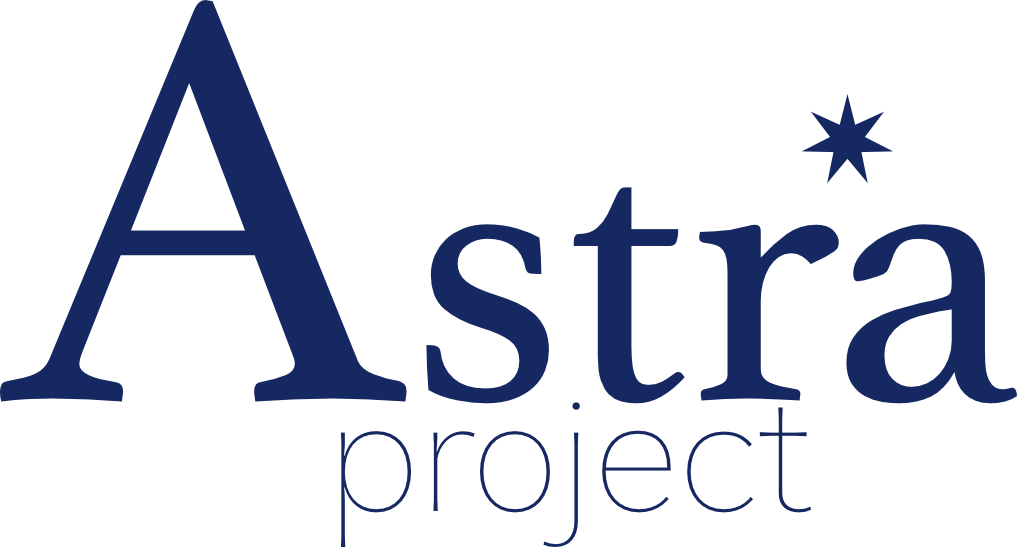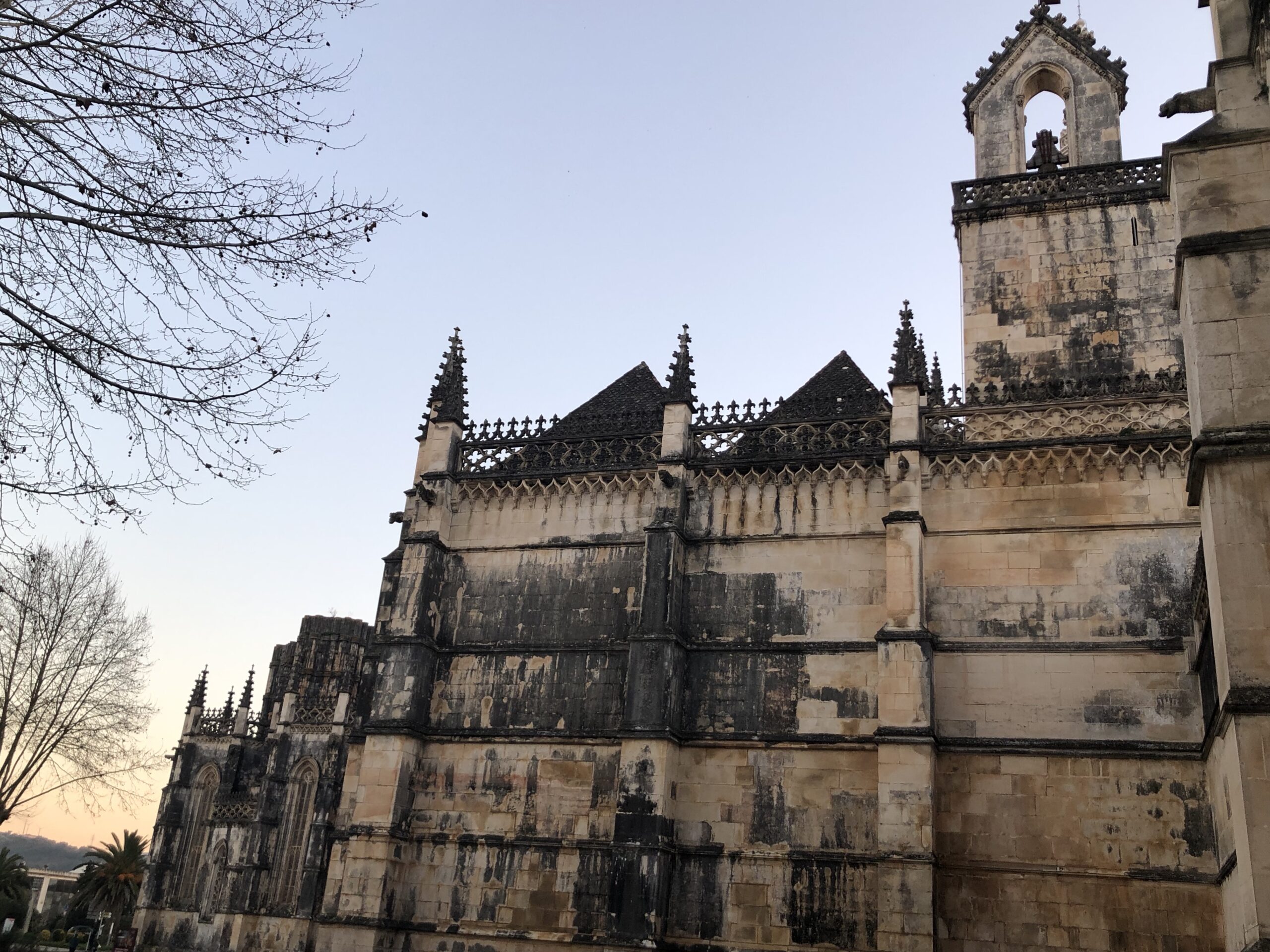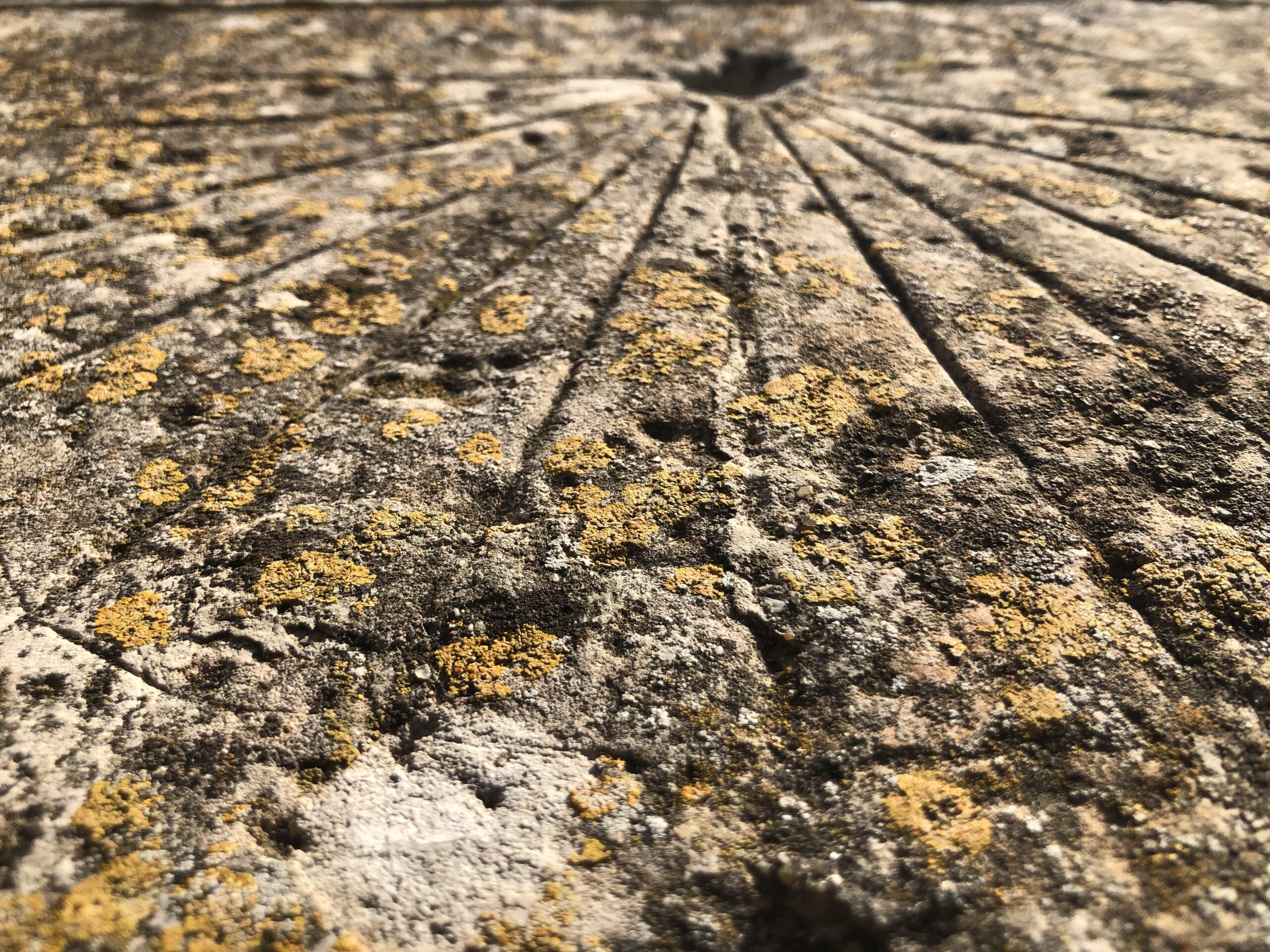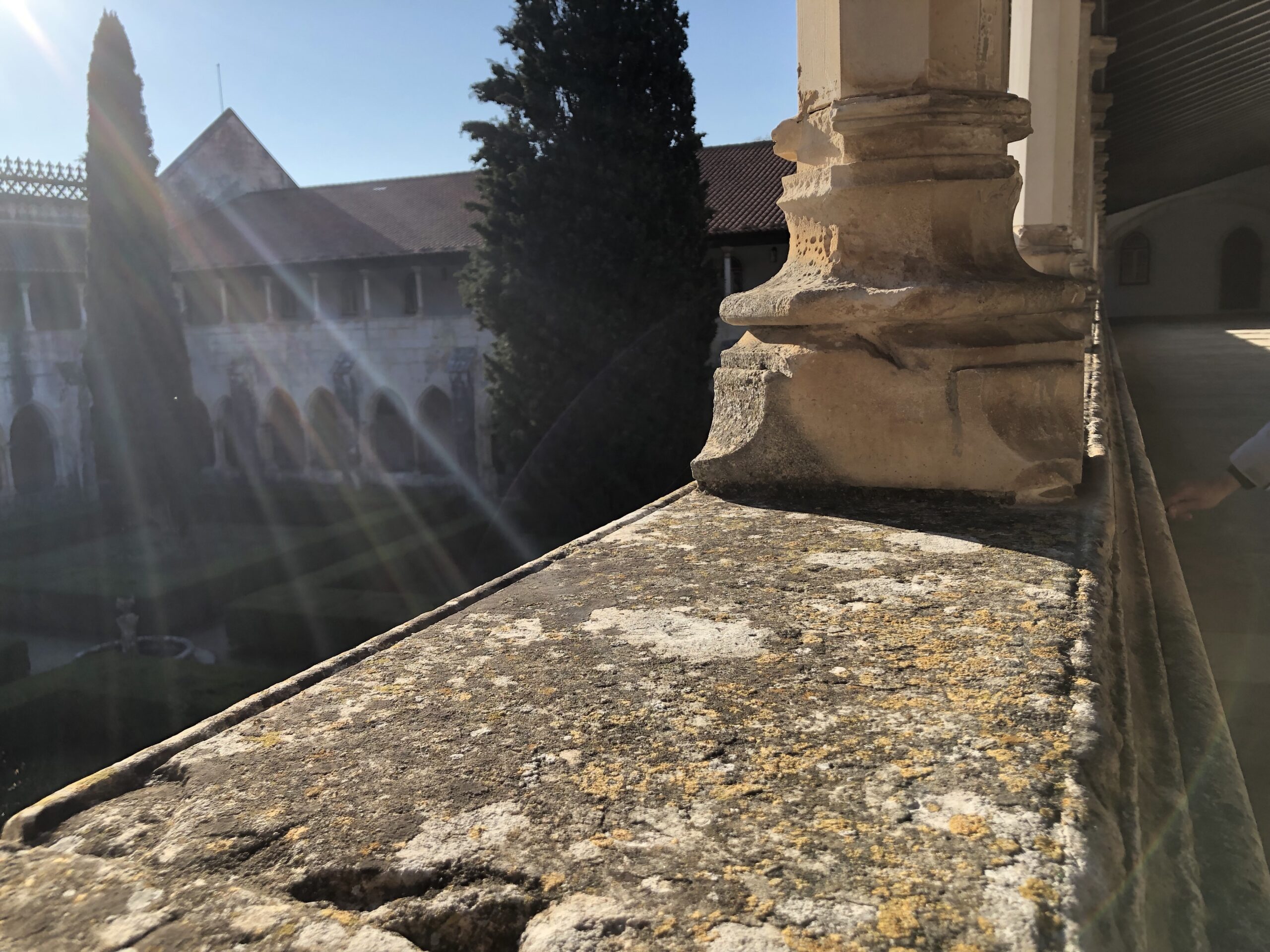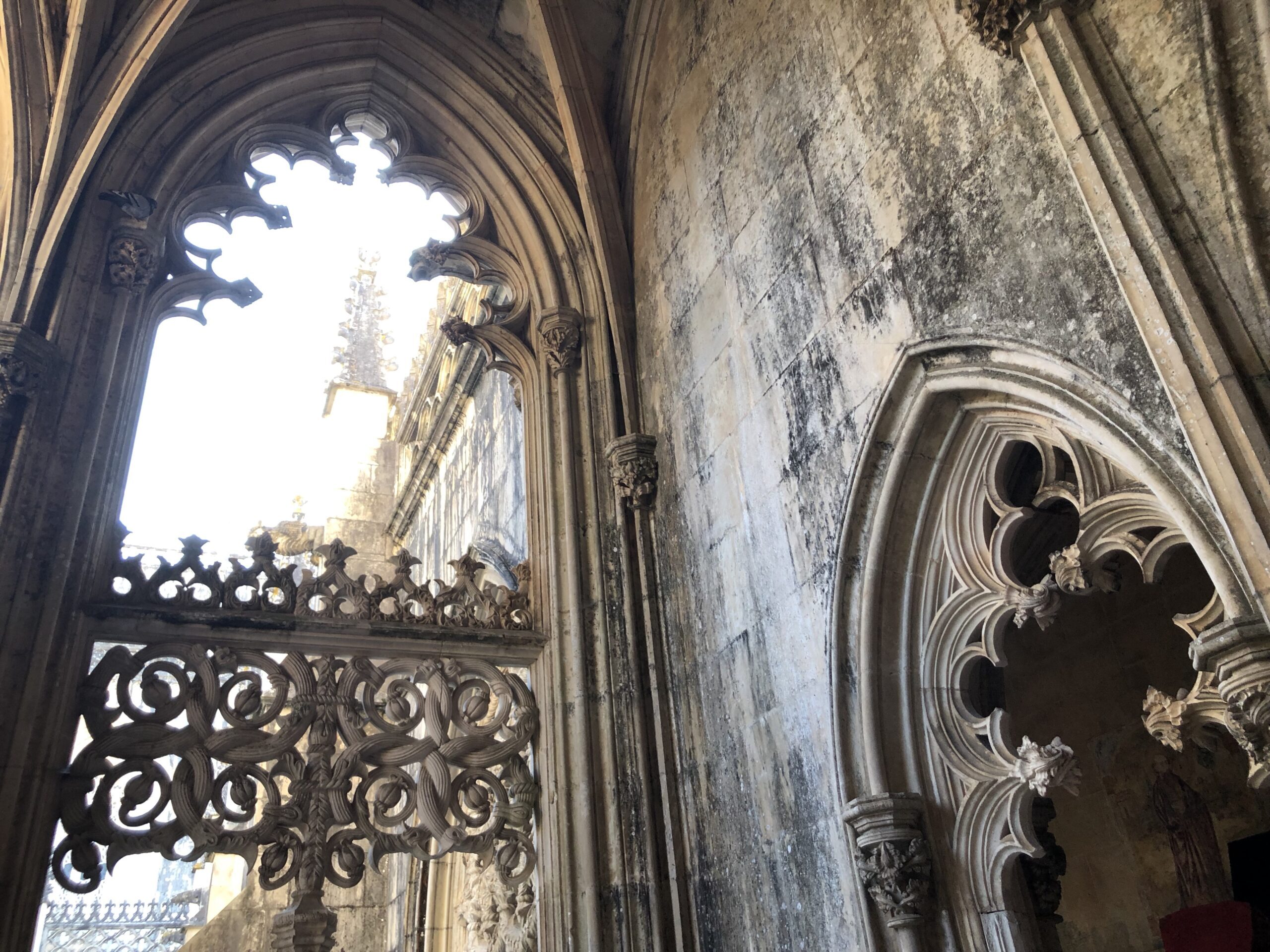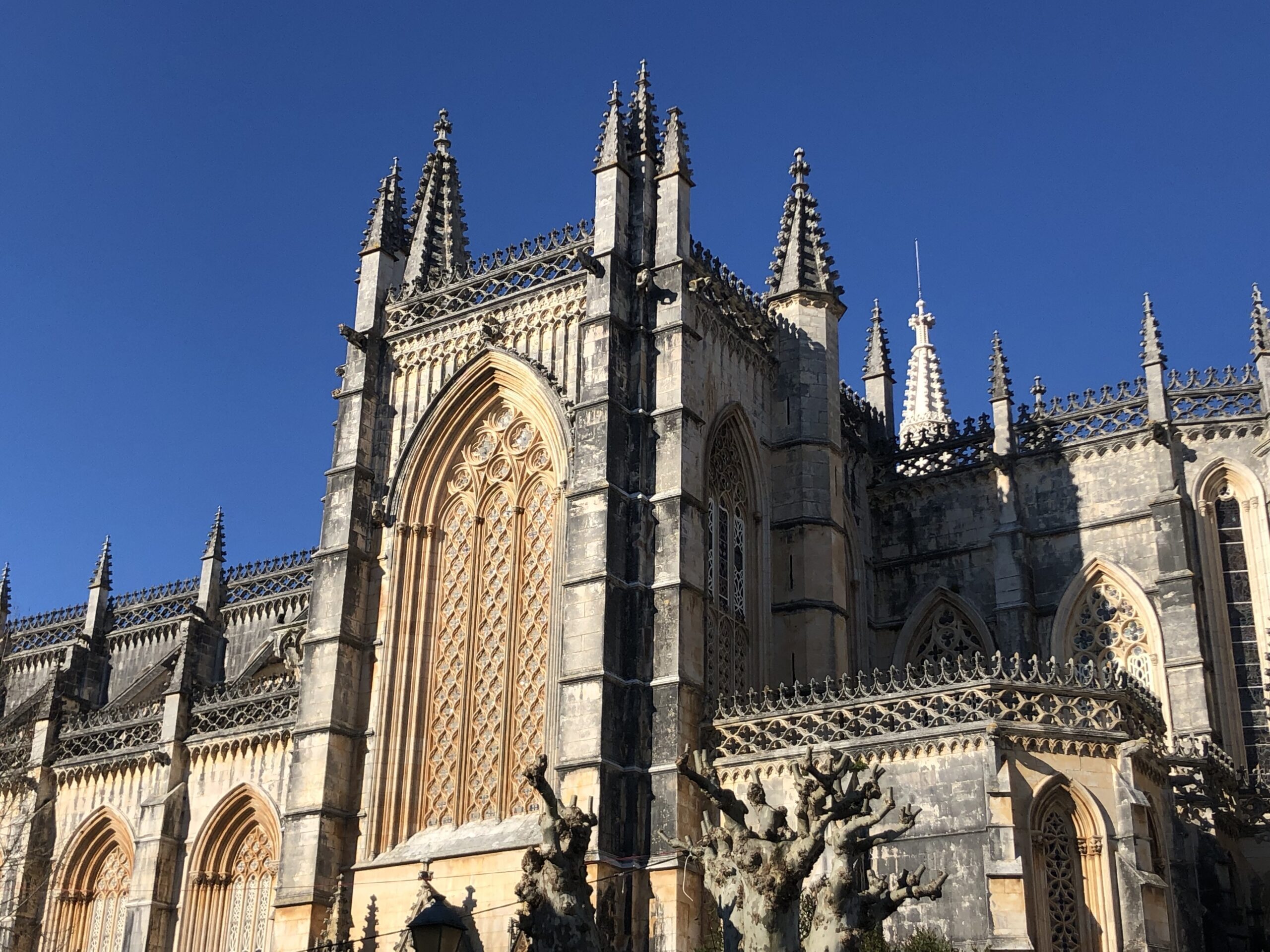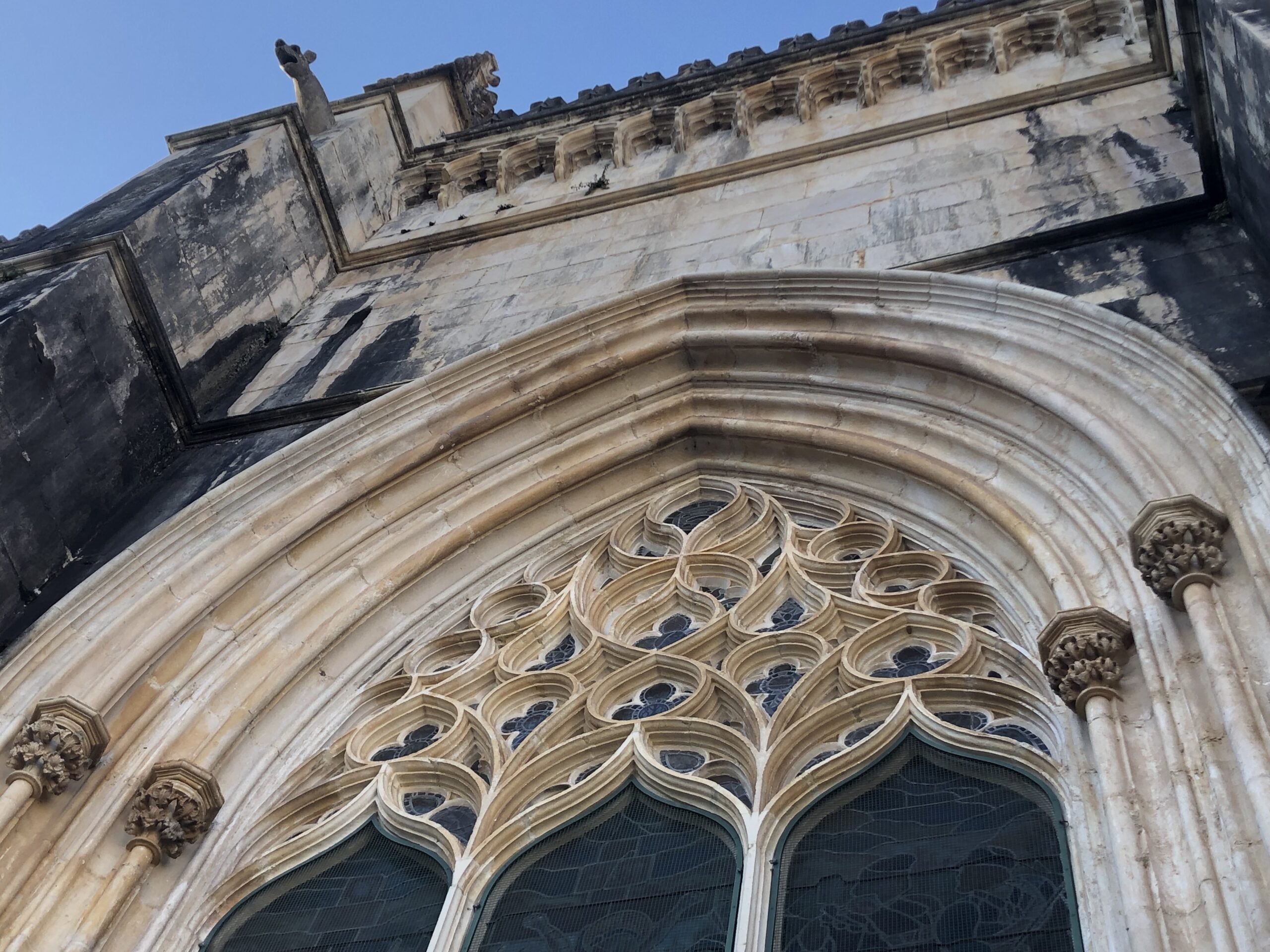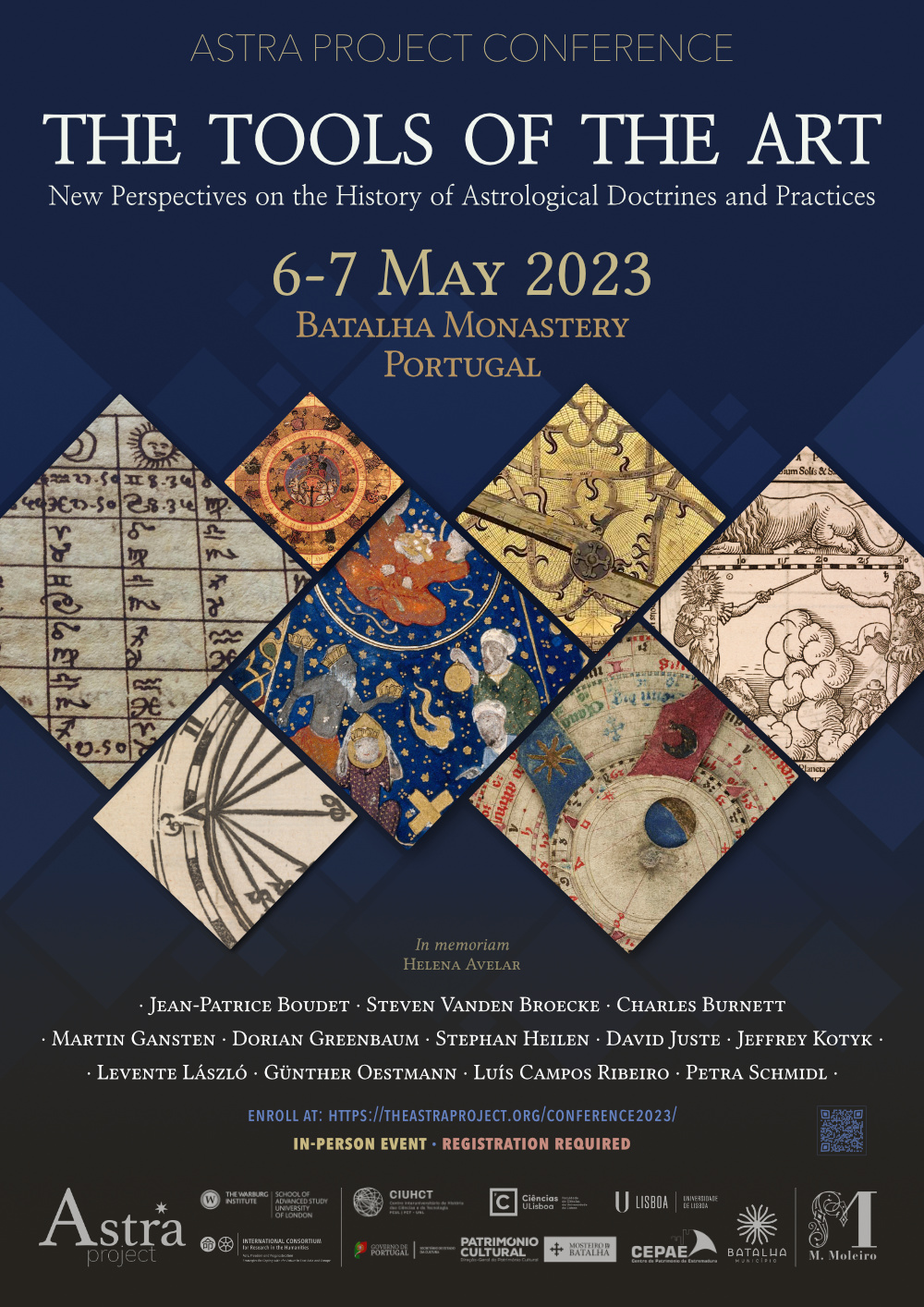
THE CONFERENCE
The Tools of the Art is the first academic meeting organised by the ASTRA Project. Several scholars will gather to debate the state of research on the historical study of astrological techniques and discuss new lines of study.
The conference is sponsored by the Monastery of Batalha in collaboration with the Astra project, with the support of CIHUCT, University of Lisbon (FCT – UIDB/00286/2020), the Batalha Municipality, CEPAE – Centro do Património da Estremadura, and M. Moleiro Editor.
The goal of the conference is to discuss the history of astrological doctrines and practices. Particular attention will be given to the creation, application, and development of astrological techniques: the principles and concepts that form the core of the astrological interpretation.
Despite astrology’s importance in western pre-modern culture, the academic study of its functioning has been sparse. The Astra Project seeks to fill this gap by bringing a deeper historical understanding of astrology’s inner workings, thus offering an essential key to the comprehension of this cultural phenomenon. This conference is the first step towards that goal.
The conference will be held in honour of Helena Avelar (1964–2021) who first promoted it.
SPEAKERS
Jean-Patrice Boudet · Université d’Orléan
Steven Vanden Broecke · Ghent University
Charles Burnett · The Warburg Institute
Martin Gansten · Lunds Universitet
Dorian Gieseler Greenbaum · University of Wales Trinity St David
Stephan Heilen · Universität Osnabrück
David Juste · Bayerische Akademie der Wissenschaften
Jeffrey Kotyk · Università di Bologna
Levente László · Eötvös University
Günther Oestmann · Technische Universität Berlin
Luís Campos Ribeiro · University of Lisbon
Petra G. Schmidl · University of Erlangen-Nuremberg
VENUE
Batalha Monastery, Portugal
The Monastery of Batalha is a stunning gothic monument located at about two-hour drive from Lisbon and a UNESCO World Heritage site. Its full name is Mosteiro of Santa Maria da Vitória (Monastery of Saint Mary of Victory) as it was built to commemorate the victory at the battle of Aljubarrota in 1385, where the Portuguese defeated the Castilians and maintained the kingdom’s independence. It is usually referred to as Mosteiro da Batalha (Monastery of the Battle). It is the largest example of Portuguese late Gothic art and houses the tombs of João I and Philippa of Lencastre, and those of their offspring, including Prince Henry the Navigator.
For those who intend to extend the visit and explore the region, there are several interesting sites in the area, such as the lovely medieval town of Óbidos, the Monastery of Alcobaça, and the Castles of Leiria, Porto de Mós, Ourém, and Tomar (headquarters of the Templar Knights).
PROGRAMME
Saturday, 6 May
Sunday, 7 May
09:00
Registration
09:30
10:00
Opening
David Juste | on-line |
The Ruling Planet (Almuten) in the Latin Tradition.
09:30
10:00
Opening
Steven Vanden Broeke
What Was an Astrological Practice?
10:45
11:00
Q&A
Coffee break
10:45
11:00
Q&A
Coffee break
11:15
Dorian Greenbaum
The Origins of Questions in Astrology.
11:15
Günther Oestmann
Ignorance, Pitfalls and Scribal Errors: On the Proper Assessment of Historical Horoscopes of the Early Modern Period.
12:00
12:15
Q&A
Charles Burnett
The name of the thief. An astrological practice which involves philology and calculation.
12:00
12:15
Q&A
Luís Ribeiro
Astrology by Numbers: Early Modern Quantification of Planetary Influence.
13:00
13:15
Q&A
Lunch break
13:00
13:15
Q&A
Lunch break
15:00
Jeffrey Kotyk
A Buddhist Astrologer and Monk in the Twelfth Century: Reading a Japanese Horoscope.
15:00
Stephan Heilen |on-line|
John of Lübeck’s Antichrist-prediction (1474). A Unique Astrological Practice.
15:45
16:00
Q&A
Petra G. Schmidl
Playing Chess or Planting a Tree? Elections in al-Ashraf ˁUmar’s Kitāb al-Tabṣira fī ˁilm al-nujūm.
15:45
16:00
Q&A
Martin Gansten |on-line|
The Place of Practice in the Historical Study of Horoscopy.
16:45
17:00
17:15
Q&A
Tea break
Levente László
Some Astrological Practices in Light of the Horoscopes of the Emperor Zeno’s Anonymous Astrologer.
16:30
17:00
17:30
Q&A
Closing
Visit to the Monastery
18:00
18:15
Q&A
Jean-Patrice Boudet
The Astrology of Nativities in Richard de Fournival’s Nativitas and in the Speculum astronomiae.
Please note that the program is subject to change and will be updated regularly.
Last update: 4 May 2023
19:00
19:30
Q&A
Closing
Organisation:
Luís Ribeiro · University of Lisbon
Joaquim Ruivo · Batalha Monastery
Henrique Leitão · University of Lisbon
Pedro Redol · Batalha Monastery
Executive committee:
Eunice Santos · University of Lisbon
Carolina Resende · University of Lisbon
Marta Passadeiras · University of Lisbon
Patrícia Costa · Independent researcher
LECTURE VIDEOS
Day one - 6 May 2023
David Juste | on-line |
The Ruling Planet (Almuten) in the Latin Tradition.
Dorian Greenbaum
The Origins of Questions in Astrology.
Charles Burnett
The name of the thief. An astrological practice which involves philology and calculation.
Jeffrey Kotyk
A Buddhist Astrologer and Monk in the Twelfth Century: Reading a Japanese Horoscope.
Petra G. Schmidl
Playing Chess or Planting a Tree? Elections in al-Ashraf ˁUmar’s Kitāb al-Tabṣira fī ˁilm al-nujūm.
Levente László
Some Astrological Practices in Light of the Horoscopes of the Emperor Zeno’s Anonymous Astrologer.
Jean-Patrice Boudet
The Astrology of Nativities in Richard de Fournival’s Nativitas and in the Speculum astronomiae.
Day one - 7 May 2023
Steven Vanden Broeke
What Was an Astrological Practice?
Günther Oestmann
Ignorance, Pitfalls and Scribal Errors: On the Proper Assessment of Historical Horoscopes of the Early Modern Period.
Luís Ribeiro
Astrology by Numbers: Early Modern Quantification of Planetary Influence.
Stephan Heilen |on-line|
John of Lübeck’s Antichrist-prediction (1474). A Unique Astrological Practice.
Martin Gansten |on-line|
The Place of Practice in the Historical Study of Horoscopy.
